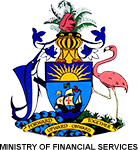Legal requirements to access international markets for food and beverage
All exported foods must be safe for human consumption. Additives must be approved. Harmful residues in pesticides are banned. The maximum levels of pesticides are frequently changing. It should also be readily obvious from labelling whether a food contains allergens as the new labelling regulation have entered into force. Detailed market requirements reports and guidance in the EU can be found on the website of CBI for 17 different agricultural and food sectors.
Food safety
Food safety is a key issue in the international food legislation. To guarantee food safety and to allow appropriate action in cases of unsafe food, food products must be traceable throughout the entire supply chain and risks of contamination must be limited. An important aspect to control food safety hazards is defining critical control points (HACCP) by implementing food management principles. Another important aspect is subjecting food products to official controls. Products that are not considered safe will be denied access to the international markets.
- Read more about Importing food products into the USA on the website of Food and Drug Administration
- Find out what are the key International Food Regulatory Trends on the Global Food Safety Resource
- Search in the EU’s Rapid Alert System for Food and Feed (RASFF) database to see examples of withdrawals from the market and the reasons behind these withdrawals
- To help you answer key questions about health control refer to the guidance documents of the EU
- Understand better growing, drying, processing and storage practices and discuss them with your suppliers. For example refer to Codex Alimentarius codes of practices

